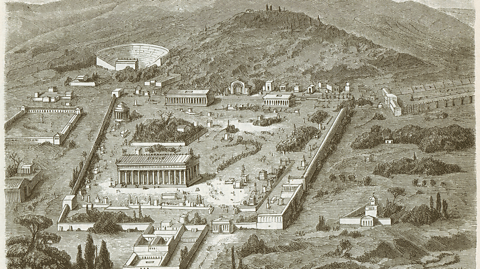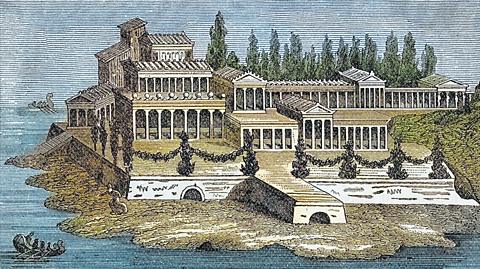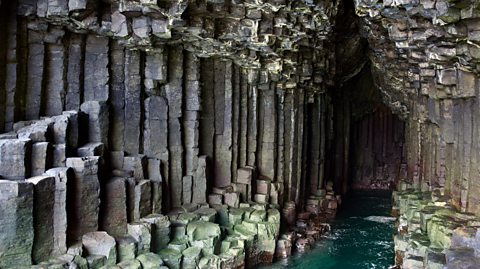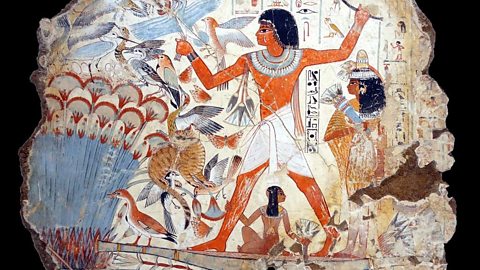There are many references to travel in the literature of the ancient world.
You only have to think of work like Homer’s epic poem, The Odyssey, composed almost 3,000 years ago, to realise that the adventurer’s spirit has existed for centuries. Travel in the ancient times was nowhere near as easy as it is today - but that didn’t stop a selected few from packing up their bags in hopes of some much needed R&R. So where exactly did people go on holiday in ancient times?

We’re all going on a summer holiday
Archaeological finds, such as historical documents, coins and trade goods from different regions, have led academics to believe that people in the ancient world did indeed travel.
Travel was undertaken for a number of reasons, from The method of maintaining peaceful relationships between nations, groups, or individuals. and trade to warfare - however some did travel for leisure. While travel is far more accessible today with advances in modern transportation, it’s not affordable for everyone, and the ancient world was no different. Long transport times and expenses meant that travel was largely dependent on class, status and profession.
Those who were lucky enough to go on holiday would face several challenges along their way. Factors such as poor weather conditions, pirates and shipwrecks often meant that getting from A to B could be a tricky task, and not for the faint hearted.

So, what would they do on their trip?
Many Ancient Greek tourists travelled across the Mediterranean in order to embark on religious pilgrimages or simply to go sight-seeing. Festivals and thermal springs also enticed holiday goers to travel between Greek cities - and the country’s The facilities or services that helps to provide comfort, convenience, or enjoyment. made them a desirable tourist destination.
Another reason to travel was to watch sport. One of the biggest sporting events that drew travellers from all across the The region of lands around the Mediterranean Sea. was the ancient Olympics. Academics estimate that more than 50,000 people made the journey to Olympia to witness the Games during their height of popularity in the second century AD.
Not only did ancient tourists seek to experience new places, they may have also been held in high regard for their exploration. Ancient Greek attitudes meant that those who travelled were considered cultured. In a dialogue called Crito, the 5th Century BCE philosopher, Plato, criticises fellow philosopher Socrates’s stay-at-home mindset, writing: “You never went out from the city to a festival […] and you never made any other journey, as other people do, and you had no wish to know any other city.”

Do all roads lead to Rome?
Similarly, ancient Romans often travelled across the empire, and it wasn’t unusual for wealthy people to holiday together in resort towns, such as Pompeii. In fact, in 2000, Italian archaeologists discovered the remains of an ancient luxury hotel in Pompeii. The excavation revealed that the building was the equivalent of a five-star centrally-heated hotel with a private spa complex attached.
For centuries, the ancient Roman town Baia was a luxury getaway that attracted people from across the country. Located around 30km (18.6 miles) from Naples, it has since been referred to as the Las Vegas of the Roman Empire - a resort town where the powerful and ultra-wealthy took weekend trips.
Not too far away, in the town of Herculaneum, was a villa considered one of the most luxurious houses in the Roman world. Believed to have originally belonged to Julius Caesar’s father-in-law, Lucius Calpurnius Piso Caesoninus, the Villa dei Papiri spanned over 20,000 sq m (220,000 sq ft). The villa looked over the sea, had large gardens and a pool and contained one of the largest collections of sculptures to ever be recovered by archaeologists from a single classical building.
Wealthy Roman tourists would also visit sites across the empire, from the Lighthouse of Alexandria to the Pyramids of Giza and even the tomb of Alexander the Great, also in Alexandria - with the last recorded visit documented in 215 AD. Some ancient visitors left graffiti on monuments - something we wouldn't advise doing today. One particular inscription on the pyramids of Egypt from a Roman tourist reads, “I visited and I did not like anything but the sarcophagus!”.
The extremely wealthy went even further, travelling as far as England in search of a spa day. Known throughout the Roman Empire, the city of Bath was visited by those looking for a good pamper. The city was mentioned in an ancient Roman travel book, and gravestones of people from different parts of the empire have been found there since. So much for Bath's famous water!
This article was published in June 2024
Four UK natural wonders that are shrouded in myth
Discover the legends surrounding four of the UK's natural wonders.

Three incredible ancient frescoes that aren’t in Pompeii
From Egypt to Italy to India, join ґуПуґ«ГЅ Bitesize as we explore three stunning ancient frescoes that aren't in Pompeii.

Have you tried these traditional foods recognised by UNESCO?
ґуПуґ«ГЅ Bitesize looks at four food delicacies and culinary practices have been celebrated by UNESCO.
